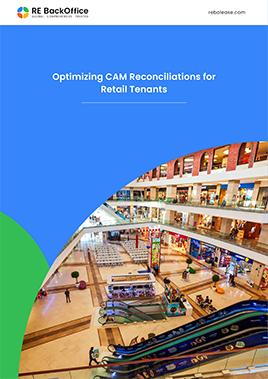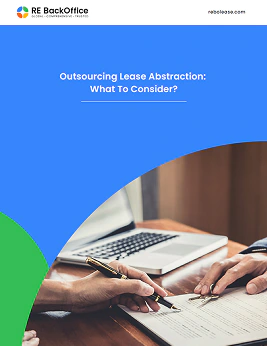
Leases are fundamental to the relationship between landlords and tenants, dictating not only the financial obligations but also the operational and usage guidelines for the leased premises. Among the various lease agreement can contain, non-financial clauses are crucial as they define the permitted use of the property, restrictions, exclusive use rights, and business hours. These elements are vital in ensuring both parties understand their rights and obligations, thereby preventing conflicts and promoting a harmonious leasing experience.
Understanding Permitted Use
The "Permitted Use" clause is a cornerstone of any lease agreement. It delineates the specific purpose for which the tenant is allowed to use the premises. This clause ensures that the tenant's operations align with the landlord's vision for the property and its surrounding area. For example, if a space is leased for a bakery, it cannot be converted into a pizzeria without the landlord's consent. This control mechanism helps maintain the intended business environment and avoids incompatible uses that could disrupt other tenants or the neighborhood.
Consider a small business owner who leases a space for a bakery. Three years into a five-year lease, the bakery is not performing well, and the owner decides to transform it into a boutique. The lease agreement includes a permitted use clause, restricting the space to bakery operations. The owner must seek the landlord's approval to change the business type. If the landlord agrees, the lease can be amended to reflect the new permitted use. Such provisions protect the landlord's interests and maintain the property's character, ensuring that all tenants operate within the agreed-upon parameters.
Restrictions in Lease Agreements
Another critical aspect of lease agreements is the "Restrictions" clause, which outlines activities that are explicitly prohibited on the premises. These restrictions are designed to maintain a safe, lawful, and consistent environment. Commonly prohibited activities include selling liquor, conducting funeral services, distributing drugs, or operating a nightclub. These restrictions help preserve the intended use of the property and prevent activities that could negatively impact its value or reputation. By clearly defining what is not allowed, landlords can better manage their properties and protect the interests of all tenants.
For instance, in an office building, a tenant decides to host a large event that includes serving alcohol. The lease agreements contains a restriction against selling liquor on the premises. The tenant must either find an alternative venue for the event or obtain special permission from the landlord to temporarily waive the restriction. This example underscores the importance of understanding and adhering to the restrictions outlined in the lease to avoid conflicts and potential legal issues.
The Concept of Exclusive Use Area
The "Exclusive Use Area" clause grants a tenant specific rights to use certain parts of the common property exclusively. This area is not part of the leased premises but provides additional privileges or advantages to the tenant. For example, in a shopping center, there might be a food court where a particular tenant's employees have exclusive access to certain tables during lunch hours.
This arrangement can be particularly beneficial in enhancing tenant satisfaction and operational efficiency. For instance, in a multi-floor shopping center, the top floor's pantry might be designated exclusively for the anchor tenant's employees. This tenant, often occupying a significant portion of the center, enjoys unique benefits, reinforcing their status and operational convenience.
Exclusive Use Rights
"Exclusive Use" is another significant clause, granting a tenant the right to be the sole provider of a specific product or service within a property. This clause prevents direct competition within the same property, ensuring that the tenant can operate without competing with other tenants for the same customer base. For example, if a tenant operates a pizza shop, the landlord cannot lease space to another tenant to open a competing pizza shop within the same shopping center.
This exclusivity fosters a monopolistic advantage for the tenant, promoting their business growth. For instance, a nationwide provider of accounting services might secure exclusive use rights in a commercial building, ensuring that no other tenant can offer accounting services there. This arrangement helps the tenant establish a dominant market presence and avoids conflicts of interest.
For instance, a tenant operating a high-end salon in a commercial complex negotiates an exclusive use clause, ensuring no other tenant can offer salon services within the complex. This exclusivity attracts a loyal customer base seeking premium salon services without having to compare multiple options within the same location. The landlord benefits by securing a long-term tenant and ensuring a diverse mix of services within the property.
Comparing Exclusive Use Area and Exclusive Use
While both "Exclusive Use Area" and "Exclusive Use" provide tenants with additional rights, they serve different purposes. An "Exclusive Use Area" gives tenants the right to use a specific part of the common property exclusively, enhancing their operational efficiency and convenience. In contrast, "Exclusive Use" grants tenants the exclusive right to offer a particular product or service, ensuring no competition within the property.
Understanding these differences is crucial for tenants to negotiate favorable lease terms and for landlords to manage tenant relationships effectively. For example, an exclusive use area might include designated parking spots for a tenant's customers, while exclusive use might mean that no other tenant can sell similar products within the property.
Defining Business Hours
The "Business Hours" lease agreement specifies the times during which a tenant must keep their store open. This clause ensures consistency and reliability for customers, particularly in retail environments.
A shopping center requires all tenants to adhere to coordinated business hours, opening at 10:00 AM and closing at 9:00 PM daily. This consistency ensures a steady flow of customers throughout the day, benefiting all tenants. A retailer initially considered opening later and closing earlier but adjusted their hours to comply with the lease agreement, ultimately benefiting from the increased customer traffic during peak shopping times.
In shopping centers, it's common for all shops to adhere to uniform business hours to create a predictable shopping experience for customers. This uniformity prevents scenarios where some shops are open while others are closed, enhancing customer convenience and satisfaction. In office buildings, business hours might differ, reflecting the nature of the tenant's operations and the building's overall use.
For instance, retail centers often have longer hours on weekends to accommodate increased foot traffic, while office buildings might have shorter hours and be closed on weekends. Tenants must adhere to these specified hours to comply with the lease agreement and meet the landlord's expectations.
Non-financial clauses in lease agreements play a crucial role in shaping the tenant-landlord relationship and the overall success of the leased premises. Clauses such as permitted use, restrictions, exclusive use areas, exclusive use rights, and business hours provide a clear framework for how the property can be used, ensuring that both parties' expectations are met. Understanding and negotiating these clauses effectively can lead to a more harmonious and productive leasing experience, ultimately contributing to the long-term success of the tenant's business and the landlord's property.
By comprehensively understanding these non-financial aspects, tenants can better navigate their lease agreement and landlords can manage their properties more effectively, ensuring mutual satisfaction and a thriving leasing environment.


